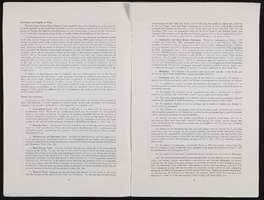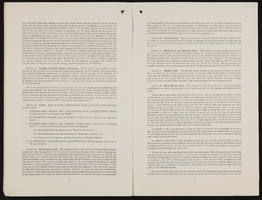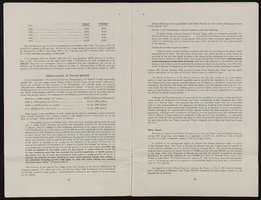Search the Special Collections and Archives Portal
Search Results
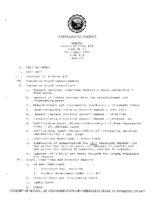
Meeting minutes for Consolidated Student Senate, University of Nevada, Las Vegas, August 09, 1983
Date
1983-08-09
Archival Collection
Description
Includes meeting agenda and minutes. CSUN Session 13 (Part 2) Meeting Minutes and Agendas.
Text
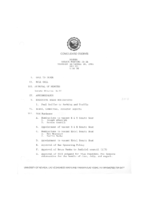
Meeting minutes for Consolidated Student Senate University of Nevada, Las Vegas, September 18, 1986
Date
1986-09-18
Archival Collection
Description
Includes meeting agenda and minutes along with additional information about bylaws. CSUN Session 16 (Part 2) Meeting Minutes and Agendas.
Text
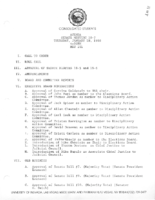
Meeting minutes for Consolidated Student Senate University of Nevada, Las Vegas, January 28, 1988
Date
1988-01-28
Archival Collection
Description
Includes meeting agenda and minutes with additional information about senate bills. CSUN Session 18 Meeting Minutes and Agendas.
Text
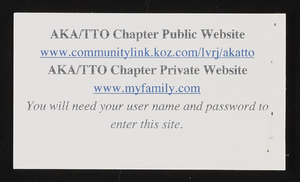
Alpha Kappa Alpha Sorority, Theta Theta Omega Chapter "Ivy Leaf" and public relations reports
Date
2004-01-03
Archival Collection
Description
From the Alpha Kappa Alpha Sorority, Incorporated, Theta Theta Omega Chapter Records (MS-01014) -- Chapter records file. Includes photocopy of newspaper article about AKA "Money Matters" financial seminar.
Text

Meeting minutes for Consolidated Student Senate, University of Nevada, Las Vegas, August 19, 1975
Date
1975-08-19
Archival Collection
Description
Agenda and meeting minutes for the University of Nevada, Las Vegas Student Senate. CSUN Session 4 Meeting Minutes and Agendas.
Text
Pagination
Refine my results
Content Type
Creator or Contributor
Subject
Archival Collection
Digital Project
Resource Type
Year
Material Type
Place
Language
Records Classification

